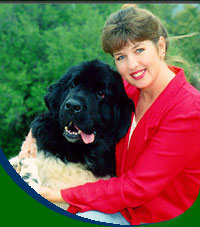|
|
 |

Your Cat's
Nutritional Requirements: The Basics
by Kymythy R.
Schultze
Protein. Dietary protein supplies
essential
amino acids and is needed for the manufacture of antibodies, enzymes,
hormones,
tissues, and proper pH balance. Protein provides energy for cats and is
essential
for growth and development. Complete proteins contain ample amounts of
essential amino acids and are found in foods such as meat, fish, eggs,
and
poultry. Incomplete proteins do not provide all essential amino acids
and are
found in many foods including legumes, grains, and vegetables. Plant
proteins
don’t supply the essential amino acids that a cat needs, such as
taurine which
come from animal protein. Cats need protein from animal sources as the
amino
acids from vegetable sources are not well utilized. Overall, cats have
a very
high requirement for protein.
Fat. Dietary fat is a
concentrated source
of energy for the cat. It also provides essential fatty acids and aids
in
nutrient utilization and transportation. Fat is involved in cell
integrity and
metabolic regulation. Saturated fat is found primarily in animal
sources while
polyunsaturated fat is found mostly in plant sources.
Linoleic and
arachidonic acids have long been considered to be essential fatty acids
(EFAs)
for cats. More recently, DHA has been added due to its important
contribution
to feline vision, reproductive health, and the immune system. EPA may
also be
of benefit. Unlike some animals, cats do not efficiently convert plant
sources
of EFAs to the needed derivatives. For example, cats must
eat meat to obtain arachidonic acid. Also, cats do not convert
LA to GLA (as some animals do), but studies show that GLA can benefit
feline
skin and coat health. The cat would also consume Omega 3s and CLA when
eating
its natural herbivorous prey.
Minerals. Minerals are essential to
the cat and
are involved in almost all physiological reactions.
They contribute to enzyme formation, pH
balance, nutrient utilization, oxygen transportation, and are stored in
bone and
muscle tissue. Biological availability may vary widely depending on the
source
of the mineral. Elemental minerals are generally taken from the earth
or water.
Chelated minerals are those that are bound with other organic
substances often
making them easier for the body to absorb.
Minerals include calcium, chloride, chromium,
cobalt, copper, fluorine,
iodine, iron, magnesium, manganese, molybdenum, phosphorus, potassium,
selenium, silicon, sodium, sulfur, and zinc.
There are other mineral elements required by cats at
trace
concentrations. Minerals, like vitamins, work synergistically. They
have a
cooperative action between them.
Vitamins. Vitamins are essential for
metabolism
regulation, normal growth and function. Vitamins are found in food and
some are
synthesized within the animal’s body. They’re classified as
either water- or
fat-soluble. Fat-soluble vitamins include A, D, E, and K. Water-soluble
vitamins include C and the B-complex. Generally, fat-soluble vitamins
are
stored in the body, while water-soluble vitamins pass through more
quickly.
Once again, the carnivorous cat utilizes animal sources of nutrients
more
readily than plant sources. For example, cats cannot convert
beta-carotene from
plants to vitamin A (as some animals do), so they need preformed
vitamin A from
an animal source. Preformed vitamin A needs no conversion.
Water. Because
cats are designed to fulfill most of their water requirements by eating
fresh
raw food, they naturally have a low thirst drive. This can lead to
health
issues for cats that eat dry cat food products and treats. One of the
problems
is that even though they become dehydrated eating the kibble, their
natural
“programming” may not encourage them to drink more water.
And their urine can
become too concentrated. Even though a healthy cat doesn’t drink
much, you
should always have clean good quality drinking water available to them.
And
please make sure it’s good quality water, which means tap water
may be out,
especially if your community puts fluoride and chlorine in the water
supply. If
you have well water, have it tested annually for contaminants.
Kymythy Schultze has been
a
trailblazer in animal nutrition for over two decades.
She is also a human nutritionist and has
helped thousands of people and their pets live happier, healthier lives. To learn how to easily prepare healthy meals
for dogs, cats, and humans, check out her best-selling books: “Natural
Nutrition for Dogs and Cats: The Ultimate Diet.”, “The Natural
Nutrition No-Cook Book: Delicious Food for You…and Your
Pets!” and her new book "Natural
Nutrition fot Cats: The Path to Purr-fect Health"
Visit
her website at www.kymythy.com
|




